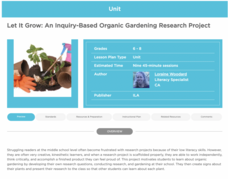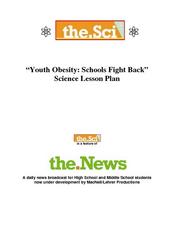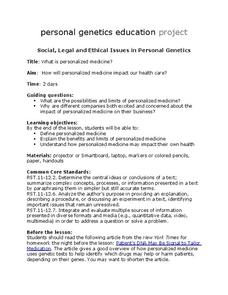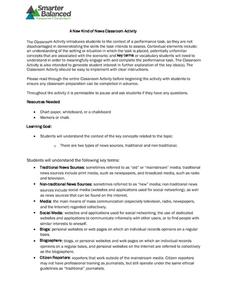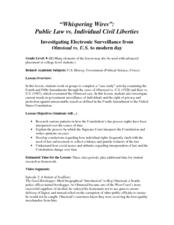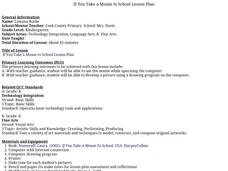Florida Center for Reading Research
Vocabulary: Word Analysis, Meaning Map
Lead young learners to understand new vocabulary with this series of word maps. The first of these organizers asks children to determine the definition and provide examples and descriptions of each word with the help of dictionaries,...
Florida Center for Reading Research
Vocabulary: Word Meaning, Word Wrap
Support young learners' acquisition of new vocabulary with this pair of graphic organizers. Using context clues and reference materials, children complete each section of the activity, including the definition, synonyms, examples and...
K5 Learning
Hide and Seek
Hide and seek is a lot of fun whether you're the hider or the seeker! Second graders read a short passage about a game of hide and seek before answering four reading questions.
PBS
Curious George: Fan and Blow
What kind of wind works best to make things move? After watching a short video from Curious George, super scientists answer the question by testing various wind-making tools. Learners observe, record, and share their findings.
ReadWriteThink
Let It Grow: An Inquiry-Based Organic Gardening Research Project
How does your garden grow? An inquiry-based, organic gardening unit asks young scientists to research a vegetable or flower, create an environment for it, and then plant and tend to the seedling. Gardeners develop their own research...
Visa
Using Credit Wisely
Receiving credit can be both a benefit and a curse. Prepare your learners to make wise credit choices by studying how credit influences credit scores, identifying the different components of credit cards, and exploring major consumer...
Curated OER
Youth Obesity: Schools Fight Back
Explore nutrition and healthy eating habits with a study on youth obesity. Learners watch a PBS documentary on the obesity epidemic which discusses government programs aimed at healthier choices, as well as more localized efforts. Kids...
Visa
Financial Forces: Understanding Taxes and Inflation
Take the opportunity to offer your young adults some important financial wisdom on the way taxes and inflation will affect their lives in the future. Through discussion and review of different real-world scenarios provided...
Advocates for Human Rights
Nativism and Myths about Immigrants
Where do anti-immigrants myths come from, and how can they be refuted? Learners critically analyze media reports and how to identify reliable sources. After studying a timeline that details the history of US nativism, groups research the...
Personal Genetics Education Project
Personalized Medicine
Genetics learners read an article and watch a video about personalized medicine and the hope it holds for treating patients more specifically than doctors currently are able to. They research, design, and produce a brochure about the...
Texas State Energy Conservation Office
Fueling the Future
Future mechanical engineers and automotive technicians read about various solutions to using gasoline in cars. Included are electric, fuel-cell-powered, and hybrid vehicles.
Howard Hughes Medical Institute
Survival of the Fittest - Variations in the Clam Species Clamys sweetus
It's not often that you come across a clever laboratory activity that is both imaginative and comprehensive! Using M&M's and Reese's peanut butter candies to represent two different clam species, young biologists test for "relative...
Smarter Balanced
A New Kind of News
Newspapers and broadcast news. Social media, blogs, and blogospheres. Class members generate a list of news sources they use to get information about events. The big idea here is to introduce the necessary vocabulary and to establish a...
Eastconn
Learning to Analyze Political Cartoons with Lincoln as a Case Study
Discover the five main elements political cartoonists use—symbolism, captioning and labels, analogy, irony, and exaggeration—to convey their point of view.
Curated OER
"Whispering Wires": Public Law vs. Individual Civil Liberties
High school student love discussing controversial issues like those brought up in this fourth amendment case study. They examine the 1928 Olmstead vs. U.S. prohibition court case, applying the fourth amendment to determine whether...
Curated OER
If You Take a Mouse to School Lesson Plan
The book If You Take a Mouse to School is sweet, enjoyable, and so fun to read. Little learners hear the tale of Mr. Mouse and all the trouble he causes. They discuss the book as a large group and then split up into smaller groups to use...
Curated OER
A Day in the Life: Studying Ancient Rome
Class members use their knowledge of Ancient Rome to write articles for an online newspaper. Using WebBlender, learners craft articles that feature Roman politics, culture, and leisure activities.
Curated OER
Spend, Save, Invest or Donate (9-12)
Students explore the concept of personal finance. In this philanthropy lesson, students examine decisions they make about money as they discover the definitions of philanthropy, resources, scarcity, choice, benefits, costs, opportunity...
Curated OER
Examining Paragraphs for Errors: Spelling
Learners review a job advertisement to find the error and then select which kind of mistake it is from a multiple choice list. To extend, have them correct the error. Note: It is a spelling mistake. Advertisement is written in British...
Curated OER
Thesaurus Practice
Learners practice consulting a thesaurus to find synonyms for each of 14 words on a list. They circle one of three choices as a synonym to match the target word. The list features adjectives you might call esoteric.
Curated OER
Sentence Fragments
Complement your lesson on sentence structure with a sentence fragment handout. While it is not interactive, learners could use it as a reference to help identify sentence fragments as they edit their own work.
Curated OER
Faulty Parallelism
Practice using parallel structure. Learners correct faulty parallelism in an extensive list of sentences. The faults in each sentence are sometimes subtle, so scholars will need solid background knowledge on parallel structure to catch...
Curated OER
Multi-Media Hero Analysis
Young scholars consider how the attributes of heroes have evolved. In this character traits lesson, students define heroism in their culture and research the epic heroes of literature. Young scholars select heroes to write about and...
NWT Literacy Council
How to Kit: Readers Theatre
Immerse your class in a good story with an extensive resource featuring reader's theater techniques. The worksheets are designed for both teacher and student, and carefully explain how to organize, write, and perform stories in a...




